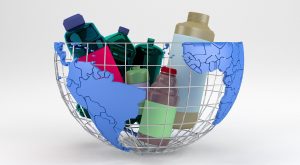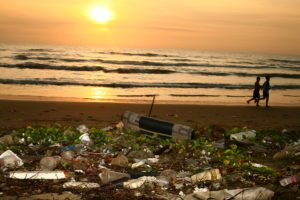Human activities, both economic and domestic in nature, cause waste that, if not treated correctly, can generate problems in areas such as health or the environment. Since back in the Industrial Revolution until today, the generation of waste materials has grown, making waste management a challenge that requires the collaboration of all, both from the public sphere and from the productive fabric, including of course, the citizens.
However, the global implementation of the 3Rs (reduce, reuse and recycle) can bring benefits not only from an environmental point of view but also economically. The sustainable development that is promoted by organizations such as the UN is committed to reconciling economic growth through less consumption of materials and energy, while the vision of waste as mere disposable garbage to become resources varies drastically as new materials or be valued energetically.
Waste is a resource that must be reused as a material or valued for energy
To promote this paradigm shift, elements such as environmental education in society are essential for citizens and companies to have a greater active participation both in waste management and in the development of innovation initiatives to improve its use. In this sense, it is worth highlighting proposals such as RepetCo, working to improve people’s quality of life through recycling. Through its own patented and environmentally friendly system, the company can recycle all kinds of post-consumer food multilayer PET/PE containers. This process allows to generate rPET pellets and rPE that can be used again in the food industry as trays and containers of multilayer PET/PE sheets.
Other news of interest: How to motivate consumers to recycle more plastic
What is circular economy?
The institutions’ commitment to promoting a circular economy strategy, in addition to the positive impacts on waste management and recycling, aims to promote significant savings in the inputs used as well as to provide greater strength to the supply of resources in any value chain, which would help reduce price volatility and the risks of potential shortages. From the employment point of view, the promotion and support of innovation projects in this industry would serve to generate new jobs, improving the strength of the economies.
From the perspective of companies, the global commitment to the reuse and transformation of waste would serve to obtain raw material at a lower cost, which would result in an improvement in productivity and, therefore an increase in the income statement . A trend, that of the greater use of recycled material in the industry, which could grow even more in the coming years if there were greater support from the Administration, for example, implementing higher tax deductions for R&D or promoting subsidy programs and public aid.
The circular economy will improve the productivity and efficiency of companies, as well as their income statement
In many sectors where a large amount of waste is generated, there are regulations that oblige companies to respond financially for the waste they generate. If mechanisms are promoted in the coming years to reuse this waste and transform it into new products that serve as a support for their industry or for others, in addition to making these materials cheaper, it would also mean for these companies to have to stop paying this extra cost that determines their economic benefit.
At a macroeconomic level, proper resource management provides a country’s image and reputation, which translates into a greater economic benefit derived from the increase in the attraction of tourists or even in attracting foreign capital to invest. In the Spanish case, the challenge of decarbonizing the activities set for 2050 will mean the obligation to implement major changes in the economy over the next few years, which may bring with it a commitment to other segments, such as the recovery of waste that obviously have a direct relationship with this commitment to clean and sustainable energy.
Other news of interest: Why the BIR has declared recycling as the main solution for the management of plastic waste







